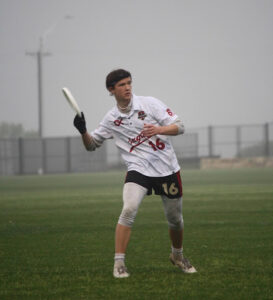Larry Nassar sexually abused at least 156 women while he was a physician for U.S. Gymnastics and a team physician at Michigan State University, according to Sports Blog Nation.
On Jan. 24, 2018, Judge Rosemarie Aquilina, of Ingham County, Michigan, sentenced Nassar to 40-175 years in prison on seven counts of criminal sexual assault. However, the earliest victim report concerning Nassar dates back to 1992.
Over the course of 26 years, female athletes reported instances of sexual abuse to trainers and coaches who dismissed the accounts. In 2014, Michigan State President Lou Anna K. Simon was notified of a Title IX complaint on campus and a police report filed against Nassar, but he was not prosecuted.
Because of the extensive amount of reports but the delayed indictment in the Michigan State case, students across college campuses need to made aware of the guidelines outlined by each universities Title IX policies.
Tamie Willis, Oklahoma Christian University’s Title IX Coordinator, said it remains imperative for students to report incidents of sexual harassment or a hostile environment. Because Oklahoma Christian students abide by a student conduct policy, which prohibits involvement in alcohol, smoking and other drugs, students, especially athletes, must understand they can report situations of sexual harassment even if they have violated the student conduct policy and they will be given amnesty.
“The university is very concerned and is very supportive of the policy and doing things appropriately,” Willis said. “We don’t want people to be afraid they might be disciplined in some way because they come to us, and that could be especially true with athletics because they would not want to lose their scholarship if they were found to be in a situation that was inappropriate in terms of Oklahoma Christian’s policies or the NCAA policies.”
The Oklahoma Christian athletic department held a Title IX presentation for all athletes to inform them of the intricacies of the policies for Oklahoma Christian students.
David Lynn, Oklahoma Christian’s athletic director, said faculty does not treat athletes differently than the general student population, but the effort to inform them is more intense because of the requirements of the NCAA.
“There is nothing really unique for the student-athlete,” Lynn said. “All the same policies apply, all of the same procedures. Information is the main thing we can do, and that’s what myself and my staff can do for our student-athletes and coaches.”
In the Michigan State case, the athletes reported their incidents to their trainers and coaches. Michigan State gymnastics coach Kathie Klages told one female athlete she “must be misunderstanding what was going on.”
According to Willis, all employees on the campus of Oklahoma Christian, except four, are considered “responsible employees, ” which means those employees are required to relay the report to an Oklahoma Christian Title IX officer .
“The only ones who are not considered responsible employees are counselors in the counseling center and our counselors through spiritual life, Jeff McMillon and Summer Lashley,” Willis said. “Everybody else is considered a responsible employee and has to report on a situation if a student comes to them.”
During the Title IX complaint of 2014, Michigan State allowed Nassar to continue to treat patients while the police conducted an investigation. The police did not charge Nassar.
Although the Title IX report led to contacting the police, Willis said it is imperative to remember Title IX is not a criminal process.
“Those are two very, very different things,” Willis said. “The criteria that we use: is it more likely than not? We come to the conclusion, is it more likely than not that the policy was violated? It is not a criminal case, and we have to keep that in mind. We will support and we try to support if a student wants to go beyond that and report it to the police. We would make sure they had the opportunity and ability to do that.”
Lynn said athletes must be aware of their positions and visibility on campus, but not discounting their position to remain safe and secure on campus and in any reporting process.
“They need to feel safe and secure in this process that nothing else is at stake,” Lynn said. “Whether it’s a coach or administrator, or their scholarship or their friends or perception in general, they need to be able to know that that’s a silent process that they can go into.”
In all of this, Willis said she urges students to report any incident where they feel uncomfortable or attacked.
“We don’t know what we don’t know,” Willis said. “If we aren’t told those things, there is nothing we can do to help the process, and that’s the biggest thing. If we don’t know, there is no way for us to help that person or help that situation.”
The full outline of the Oklahoma Christian Title IX policy can be found online.












Be First to Comment